Five Things to Do if You're Forced Into Early Retirement (and How to Reset and Recover)
Originally featured on Kiplinger. Read the full article here:
Five Things to Do if You're Forced Into Early Retirement (and How to Reset and Recover) | Kiplinger
Developing a solid retirement plan — before a layoff — can help you to adapt to unexpected changes in your timeline. Once the initial panic eases, you can confidently reimagine what's next.
You're 62. You love your job. You're respected, productive and contributing meaningfully. You were planning to work for five more years.
Then, one day, like thousands of others, you receive an email: Your job is being eliminated. "Stay tuned for a webinar," it says. "More details to come."
Or maybe you're 68. You've built a career that's not just successful but deeply fulfilling — so much so that you envision working until 73. You are well-compensated and appreciated for your leadership and institutional knowledge, and you're planning events six months out.
Then, without warning, new management decides to go in a "different direction." Just like that, retirement comes to you — before you're ready.
Why this happens more than you think
According to the 24th Annual Transamerica Retirement Survey, more than half of retirees leave the workforce earlier than planned, often for reasons beyond their control. Health issues, corporate restructuring, budget cuts or AI-driven job shifts are common triggers.
We've seen this firsthand. One client — a high-earning executive in his late 50s — was suddenly let go.
Faced with an unexpected job loss and assuming he wasn't returning to work, his personal financial analysis revealed a stark reality: To sustain his current lifestyle, his investments would need to consistently earn 10% annually.
I advised him that this was an unrealistic and risky assumption, which is why, as his adviser, I worked with him to adjust return expectations to more realistic and achievable targets.
Forced retirement has a way of revealing the cracks even in seemingly solid plans.
When you don't have a plan
When retirement arrives unexpectedly, the greatest anxiety often comes from not knowing where your next paycheck will come from. Many quickly realize that 401(k)s and IRAs are not income plans — they're just investment accounts.
Without a strategy to convert those savings into monthly income (e.g., lifetime income annuities or tailored income portfolios), fear sets in fast.
According to Allianz Life's 2024 Retirement Study, more than half of Americans have no retirement plan. And when there's no plan, knee-jerk decisions can follow:
- Claiming Social Security too early
- Becoming too conservative with investments
- Ignoring tax strategy and increasing withdrawal costs
Without a road map, people don't just lose income — they lose confidence. But it's never too late to pause, reassess and take action.
Building a new bridge to retirement and identity
If you're facing unexpected retirement, the steps you take next can shape your future — financially and emotionally. Key actions to consider:
Create short-term income. Look into consulting, freelancing or gig work. If needed, draw from taxable accounts first to preserve tax-deferred growth.
Revisit your withdrawal strategy. Understand which accounts to tap and the tax implications of each.
Secure health coverage. Explore COBRA, Affordable Care Act (ACA) marketplace options or early Medicare (if you're eligible, such as due to disability).
Seek professional guidance. A retirement-focused adviser can help you adjust income, manage taxes, and chart a new path.
Reframe your identity and purpose. One client found fulfillment tutoring high school students, a role that brought both structure and joy.
Taking intentional steps can restore stability and open the door to new possibilities.
Emotional fallout and how to cope
If retirement comes sooner than you planned, that doesn't mean you've lost control of what happens next.
The transition can stir up a mix of emotions — grief, shock, resentment, even relief. Each is valid. This isn't just the loss of a paycheck — it can feel like the loss of identity, structure and community.
Here's how to process those emotions and begin reclaiming your sense of purpose:
Redefine your identity beyond work. Who are you outside your job title? A mentor, a parent, a volunteer, an artist? Retirement can be a powerful chapter of self-discovery.
Reframe the narrative. You weren't discarded — you were redirected. For some, this becomes an unexpected gift of time or renewal.
Stay connected. Join a local group, volunteer or take a class. Social engagement can lift your spirits and prevent isolation.
Create a rhythm. A simple routine — morning walks, dedicated hobby time, regular calls with loved ones — can add structure and stability.
You didn't choose this retirement, but you still get to choose what comes next. This chapter, though unplanned, can be filled with meaning and joy.
When you have a plan
When you begin planning five to 10 years before retirement, you're not just prepared — you're empowered. You're better positioned emotionally and financially to respond if life accelerates your timeline. With a thoughtful strategy, you can pivot instead of panic.
Effective retirement planning includes:
- Understanding your current and future expenses
- Visualizing how you'll spend your time — travel, hobbies, part-time work, caregiving
- Mapping out income sources: Social Security, pensions, annuities, withdrawals
- Using software to model scenarios: What if I retire early? What if taxes rise? What if I need long-term care?
When you have a plan, you're not starting from scratch — you're adjusting with confidence and clarity.
Caprice Torrisi, a licensed insurance professional at Vitality Investments, contributed to this report.
About the Author
Victoria Larson, RICP® is an independent, fiduciary financial advisor and founder of Vitality Investments. With over 20 years of experience in the financial services industry, she specializes in holistic, retirement-focused planning. Her work helps clients protect, grow, and use their assets in ways that align with their goals and values. Victoria partners closely with individuals and families to build income security, minimize taxes, and prepare for life’s financial uncertainties.
Hypothetical examples used are for illustrative purposes only.
Investment advisory services offered through Brookstone Wealth Advisors, LLC (BWA), a registered investment advisor and an affiliate of Brookstone Capital Management, LLC. BWA and Vitality Investments are independent of each other. Insurance products and services are not offered through BWA but are offered and sold through individually licensed and appointed agents. Index or fixed annuities are not designed for short term investments and may be subject to caps, restrictions, fees and surrender charges as described in the annuity contract. Guarantees are backed by the financial strength and claims paying ability of the issuer. Please refer to our firm brochure, the ADV 2A Item 4, for additional information. Registered Investment Advisors and Investment Advisor Representatives act as fiduciaries for all of our investment management clients. We have an obligation to act in the best interests of our clients and to make full disclosure of any conflicts of interests. Please refer to our firm brochure, the ADV 2A item 4, for additional information.

